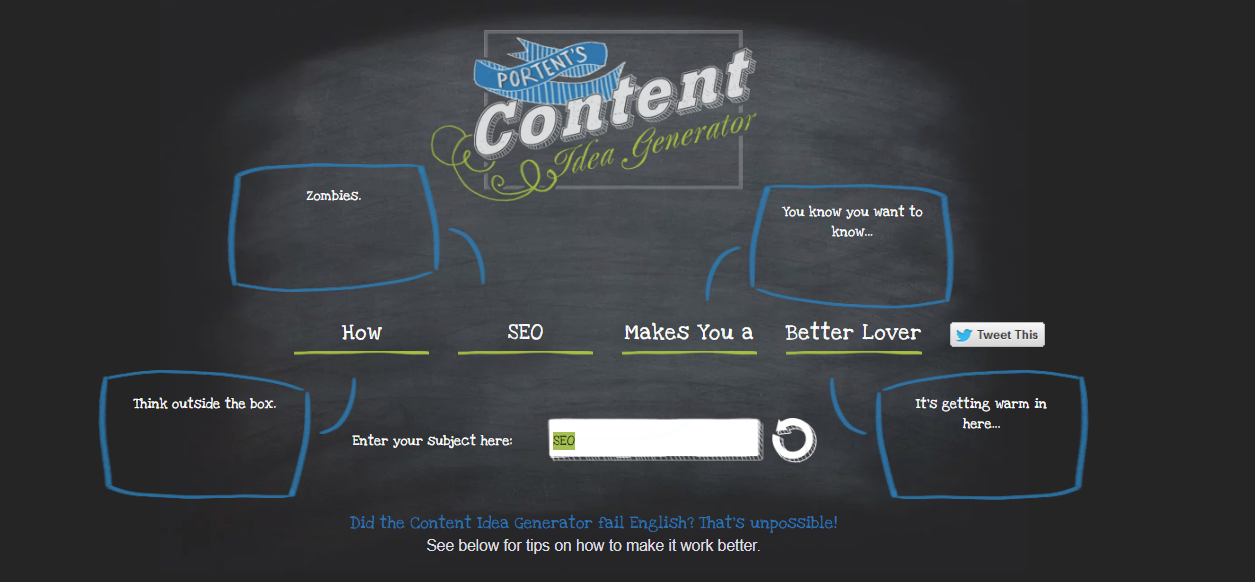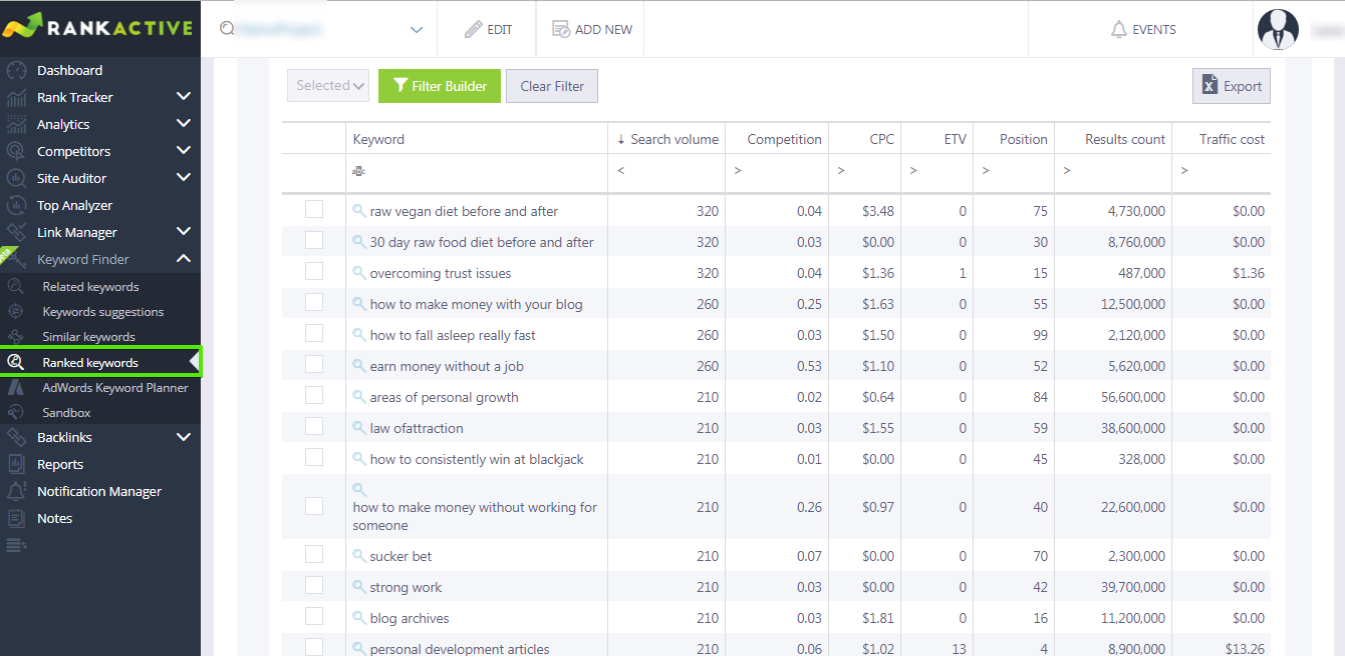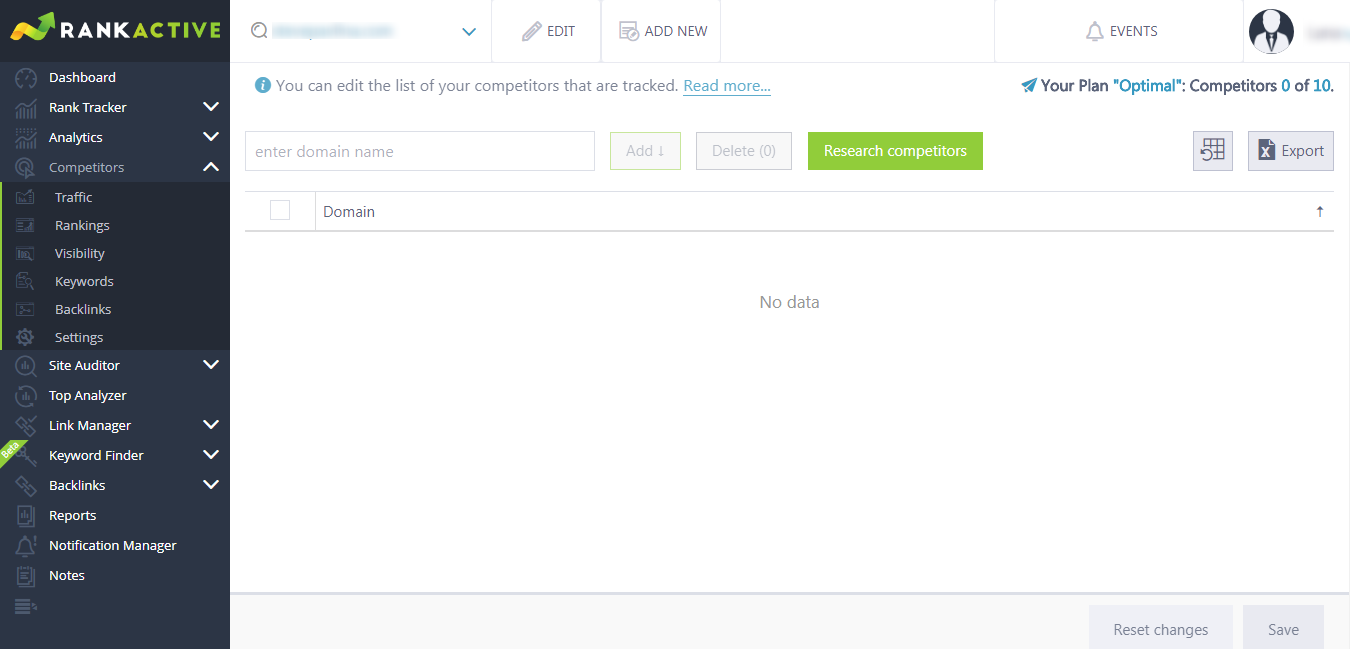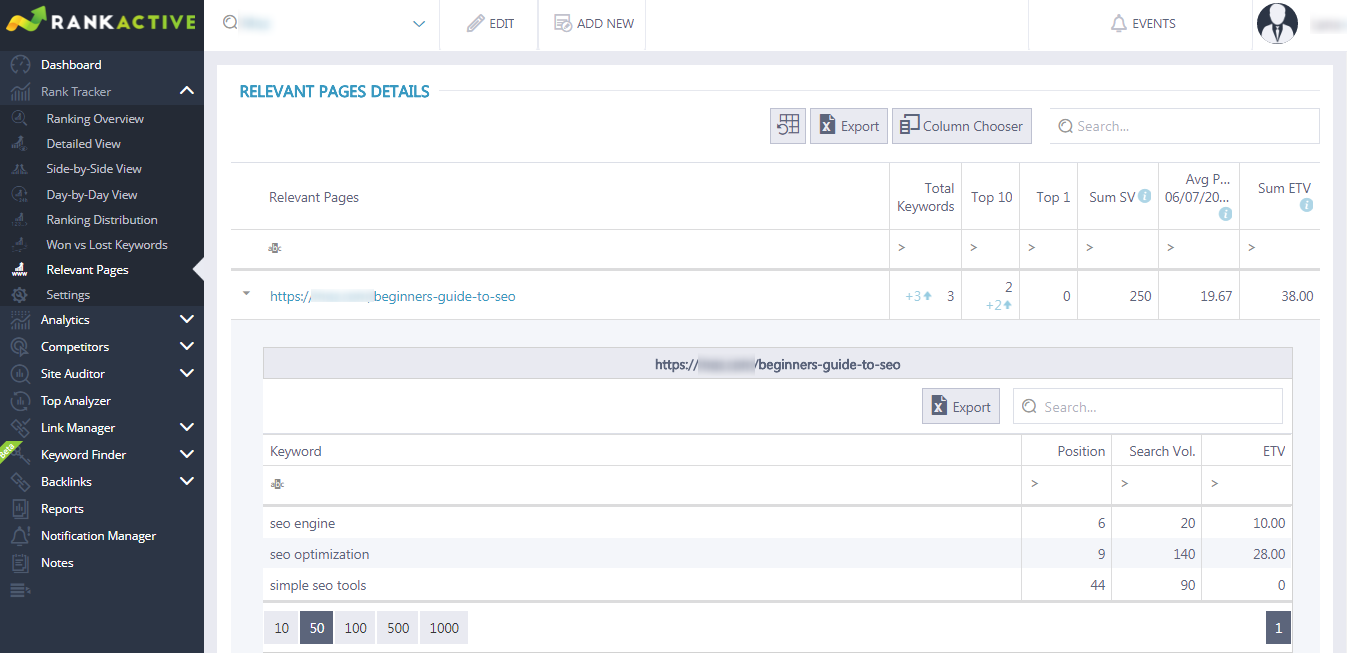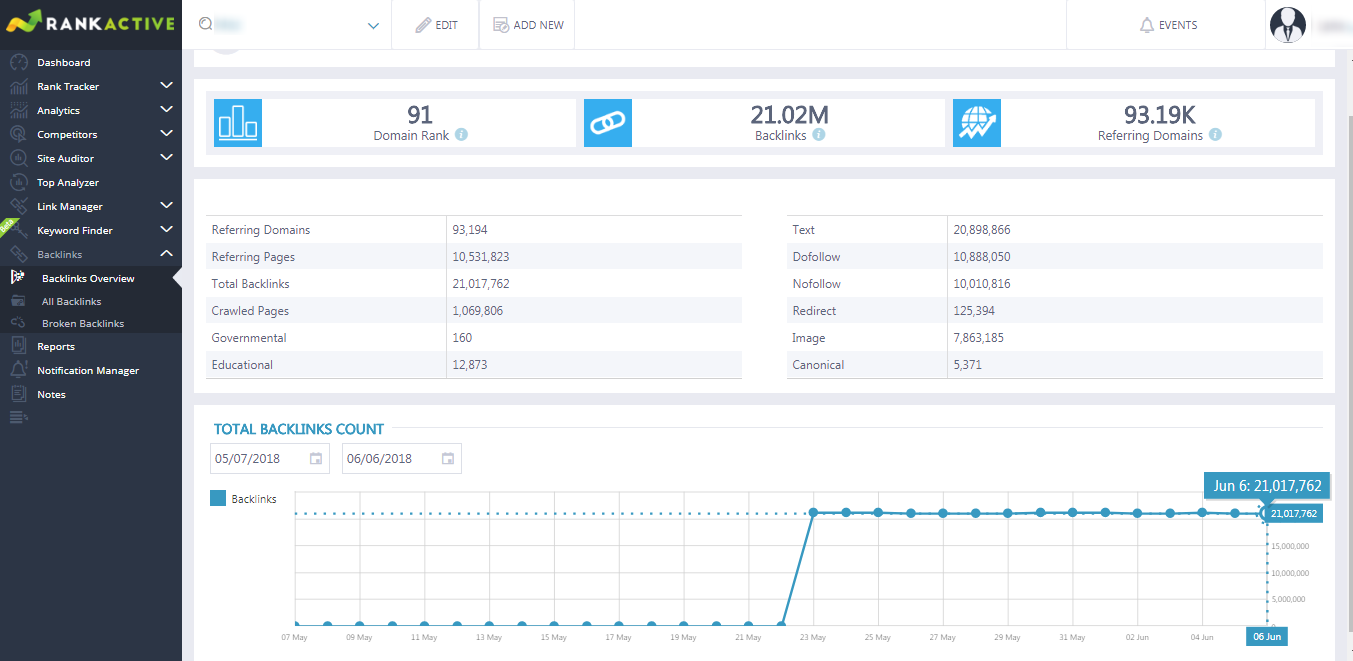5 Blogging Tools I Constantly Use To Kill in SERPs
7 June 2018 Leave a comment CONTENT MARKETING
Hola! I know you’ve been struggling to get ideas for your blog posts. It feels like you’re almost going crazy because you’ve tried to catch this sneaky muse that comes and goes.
You feel like recently you’ve become more absentminded than ever before. And now you can’t simply concentrate on writing something decent, and you’re dreaming about the good old days when you were at the top. The driving force and passion seem to be fading away, bla, bla, bla…
Stop! I’m here to help you find out the best ideas that actually live inside you. They just need to have a slight kick in the butt.
1. Hubspot Blog Ideas Generator
Wonder how this article appeared? It’s a secret, so don’t tell anybody. It started out as “RankActive for Bloggers”. Who would have read it? Nobody. This tool helped me to generate some ideas. Everytime I use the blog ideas generator it doesn’t give me the exact title, however, it makes my brain think in other directions and then some sweet ideas start popping up. I highly recommend using it. What I don’t recommend is that you simply copy and paste everything that it gives you, because it seems to be gathering titles from SERPs and there are millions of the same titles on the web.
There is another tool which gives you ideas that you wouldn’t have ever even thought of. Portent’s Ideas Generator is just an amazing creation that provides you with absolutely outstanding titles. If you don’t use them for your own post titles, at least you can have some good laughs and expand your lifespan, which is also great.
Hell yeah! Wonder how SEO makes you a better lover? Yeah, so am I. This is good stuff. I highly recommend using this title generator. Masterpiece.
2. Keyword Finder
The best way to come up with a really good title that actually has power and value for you and your readers is to know the exact search volume for the keywords that are included in a title. How can you do that? How do you know if Hubspot’s title generator gives you good titles or not?
What I suggest using is our Keyword Finder which has 5 different searching algorithms and takes the most searchable, high volume, variants directly from SERPs. You can use these words separately to create a combination of keywords that people are looking for most often.
From all those 5 algorithms we, as bloggers, can benefit from using the “Ranked Keywords” one. How does it work? You enter a domain name of a website that is in your niche, and which you think might be your own direct competitor. What happens next?
Our tool gives you the keywords which domain name is ranking for. What you see there is the competition rate of a keyword, its search volume, CPC rate and you can also notice a small magnifying glass icon. If you click on this icon, you’ll open a page in a new tab with this keyword which is absolutely amazing because you can analyze your potential competitor’s content much better.
There is one thing that needs to be mentioned which is the keyword density. How many keywords should you include into one article? Do you even count the keyword density? In our earlier article we have tried to enlighten this idea of how many keywords you need for the article to be good. Today, I personally see things a little bit different. Counting keywords is pointless since when you write an article on some topic, say “Google’s Final HTTP Warning” you’ll automatically use keywords all the way through the article. On the contrary, if you try placing keywords deliberately you’ll end up stuffing your article which is going to affect the readability of content and will lead to having bad SEO experience.
3. Competitors Analysis
Get ready for some insights here. And, of course, don’t tell this anybody. When we started our company in 2014 we knew that there is a blank spot in the market which we knew how to fulfill and benefit from.
However, it took us a couple of months to realize the actual importance of watching our competitors very closely. We were a bit unaware of who was around us, however, we were strongly persistent and with a little of research we found out that we can actually make something that our competitors don’t yet possess. And so we did it. Anyway, there were competitors on the market and they are still here. Some of them we have already beaten up and some of them…, well, it’s just a matter of time.
What do we do to know our competitors environment? How do we know why they are better at some things? What actions should we take in order to outshine our competitors?
First, we created this tool, called Competitors Inspector, for ourselves. Soon after we realized that we can deliver this tool to the world and help more people perform competitors analysis.
Using this tool you can generate a list of potential competitors related to your field and start analyzing them in order to see in what things they may be better and how you can beat them.
Apart from it, there is another thing that you can do and which I constantly use to outshine competitors. Without even creating a new project I can enter the domain name of my competitor into the Keyword Finder and see the exact keywords my competitors are ranking for. This is how I can fish out a couple of some decent keywords for myself.
What are the decent keywords? The ones that are long-tail keywords, which have high search volume and low competition rate.
4. Rank Tracker
Whenever I come up with outstanding keyword ideas which I immediately apply, I need to know how they work and if they do at all.
If I’m lying on a couch, staring at the ceiling and generating the best keywords in the world I simply don’t know their possibilities and potential performance because these are just the fruits of my imagination. However, if I use tools to help me rely on data and actually see the progress and working capacity of keywords the situation changes for the better.
When I have come up with a list of keywords, I add them to Rank Tracker to start watching them and seeing the dynamics of changes and how they perform. More exactly, I watch if their rankings drop or grow, whether they win or lose, etc.
If I see that the keyword is not working I change the word order and start over. If it doesn’t work at all – I throw this keyword away. I simply test it over and over again until I find some workable keywords. That’s the trick.
There is another cool thing that I like to use which is Relevant Pages section. It shows you the exact keyword that your page is ranking for and this is what displays you the actual result of all your “test-test-test” strategy.
5. Backlinks Explorer
I already have an idea, I’ve written a decent piece of content filled with powerful keywords which I either found myself or stole them from my competitors. What’s next?
If I intend to get a couple of guest posts I go to the Backlinks Explorer to track the list that I’ve got from other webmasters who are now pointing to my website. It helps me to monitor the links in real time and actually make sure that they are working correctly and there are no broken links found.
No doubts that I need to see all the backlinks that are pointing to my domain and their categories such as governmental, educational links and other resources. They all contribute to my overall domain authority a scale, that was created by Moz. I also like this video that very well explains what domain authority is and how it is estimated.
Conclusions
If you’ve just started out building your own blog you’ll find these tools very helpful and easy to use. Surely, if you’re already an experience blogger I highly recommend using these tools. I use them regularly to build each article and moreover I can go back to already-written articles and analyze them one more time in order to polish them and make them look much better. Happy blogging!:)
Tags: blog tools, tools for blogging
Like this article? There’s more where that came from.
- 5 Questions to Ask Yourself Before Paying for Rank Tracking Software
- 5 Serious Mistakes Beginner SEOs Make and How to Fix Them
- Why We Use Google’s New Link Attributes and You Should Too
- Title and Description in 2021: Why Google Rewrites SEOs’ Meta Tags
- What We Should Learn From Google’s “About This Result” Feature


